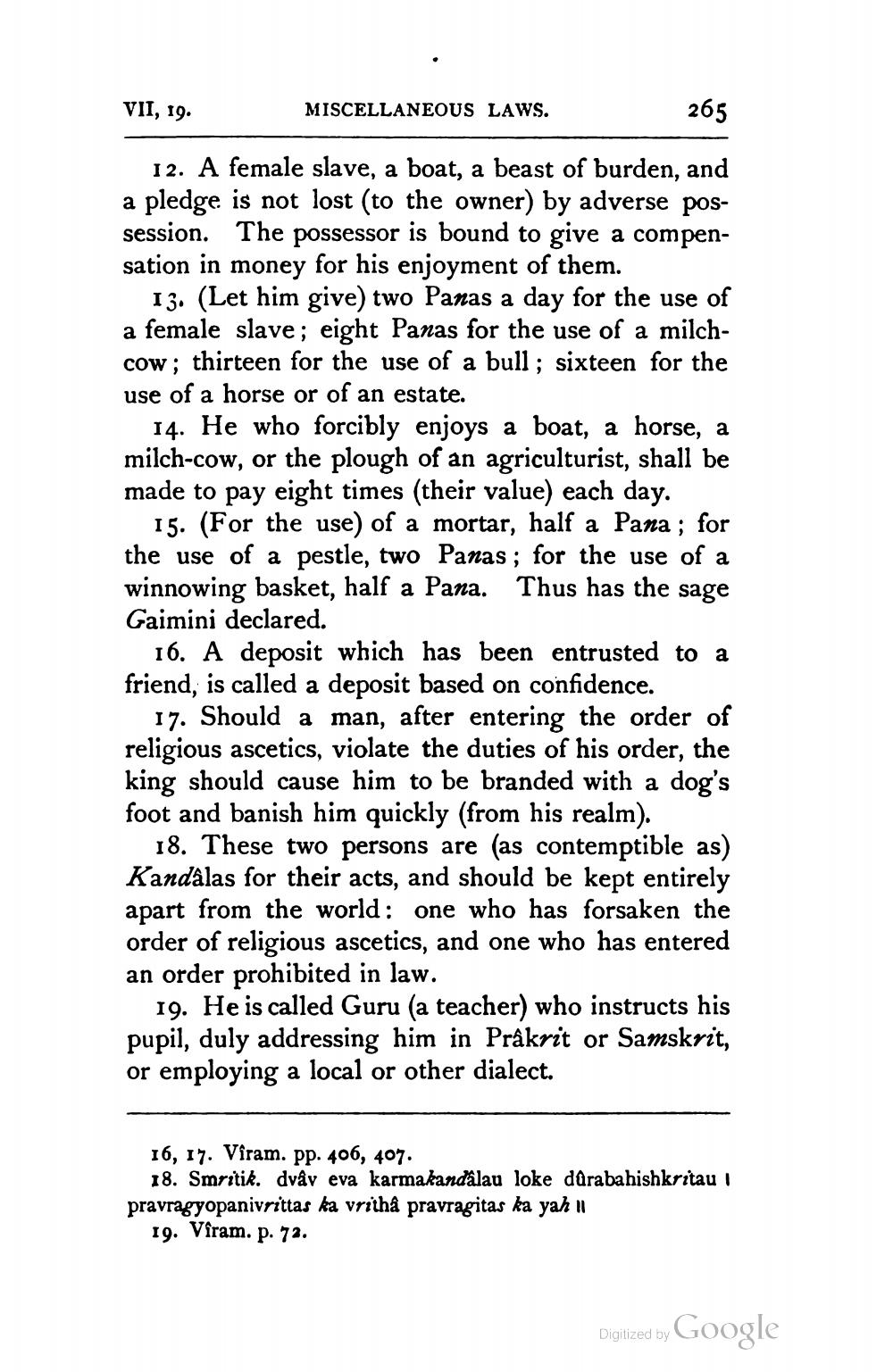________________
VII, 19.
MISCELLANEOUS LAWS.
265
12. A female slave, a boat, a beast of burden, and a pledge is not lost (to the owner) by adverse possession. The possessor is bound to give a compensation in money for his enjoyment of them.
13. (Let him give) two Panas a day for the use of a female slave; eight Panas for the use of a milchcow; thirteen for the use of a bull; sixteen for the use of a horse or of an estate.
14. He who forcibly enjoys a boat, a horse, a milch-cow, or the plough of an agriculturist, shall be made to pay eight times (their value) each day.
15. (For the use) of a mortar, half a Pana ; for the use of a pestle, two Panas; for the use of a winnowing basket, half a Pana. Thus has the sage Gaimini declared.
16. A deposit which has been entrusted to a friend, is called a deposit based on confidence.
17. Should a man, after entering the order of religious ascetics, violate the duties of his order, the king should cause him to be branded with a dog's foot and banish him quickly (from his realm).
18. These two persons are (as contemptible as) Kandalas for their acts, and should be kept entirely apart from the world: one who has forsaken the order of religious ascetics, and one who has entered an order prohibited in law.
19. He is called Guru (a teacher) who instructs his pupil, duly addressing him in Prakrit or Samskrit, or employing a local or other dialect.
16, 17. Viram. pp. 406, 407.
18. Smritik. dvây eva karmakandálau loke dûrabahishkritau i pravragyopanivrittas ka vrithâ pravragitas ka yah II
19. Vîram. p. 72.
Digitized by Google




